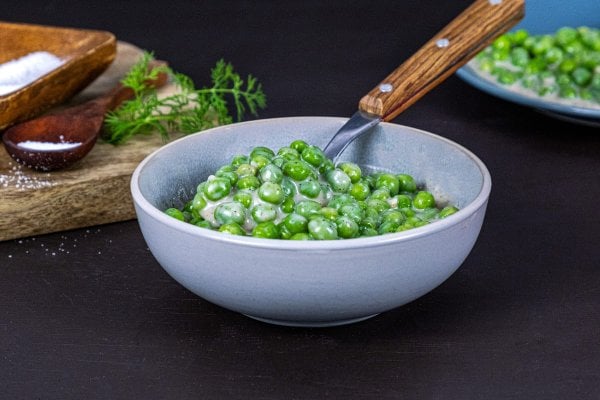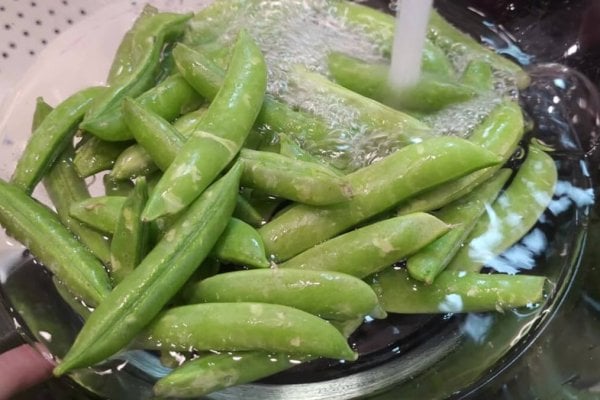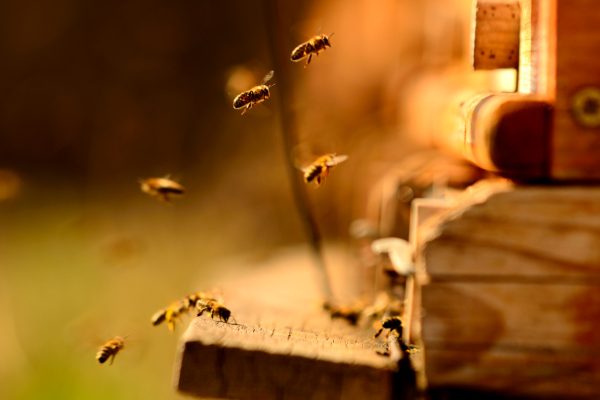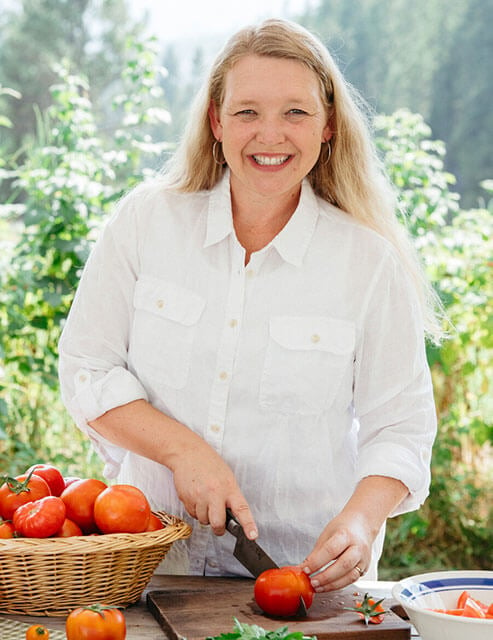Why do chickens stop laying eggs? Old age? The heat of summer? A long cold winter? Read on to find the cause and what you can do to help.
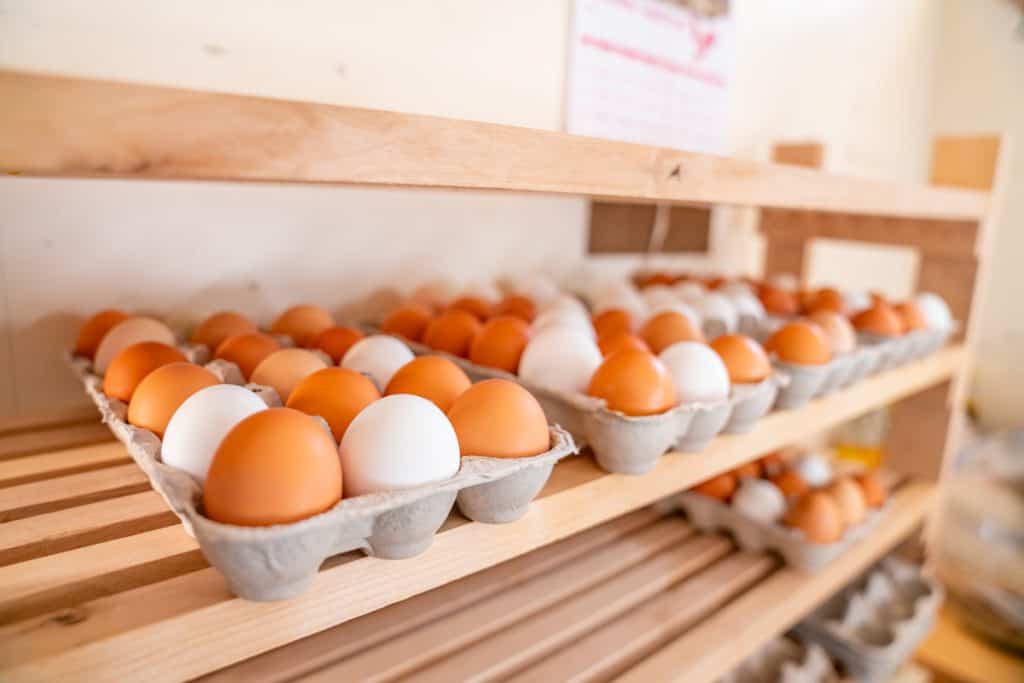
It can be frustrating when we don’t have answers to questions like, “Why do chickens stop laying eggs?” The thought of decreased egg production and the possibility that your hens stop laying eggs can be daunting.
Delving into why chickens stop laying eggs and knowing what a natural cause vs. what needs our attention can alleviate these frustrations.
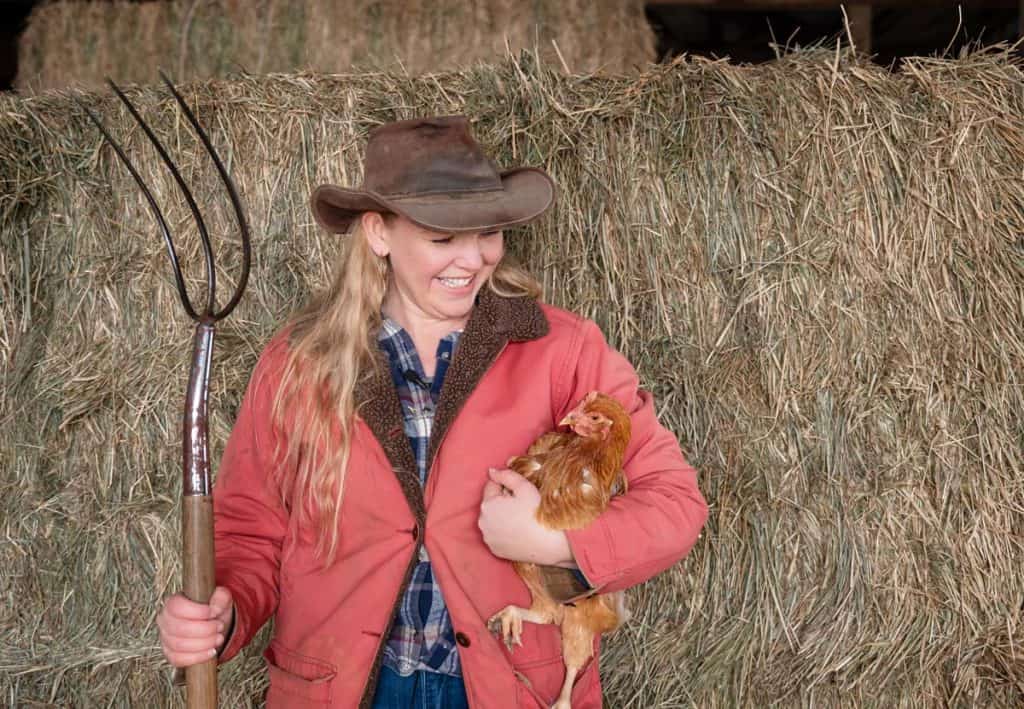
Why We Raise Egg-Laying Chickens
We enjoy raising backyard egg-laying chickens and meat chickens to save money on groceries and help feed our family year-round.
Not only do we receive health benefits when we consume free-range meat, make nourishing bone broth, and enjoy fresh eggs, but we also use chickens to restore the land and use the deep litter method to enhance the chicken’s health and make better compost.
Doing so enriches the soil for our large-scale vegetable garden and the cottage garden where I grow my medicinal herbs.
Chickens have a natural cycle for laying eggs; therefore, we honor that cycle and preserve eggs when production is high. It’s good to know several ways to preserve eggs, such as water-glassing eggs or freeze-drying eggs for long-term storage.
Because of these preservation techniques, we have plenty of eggs to feed our family during low production times, allowing our ladies to take a natural break each year.
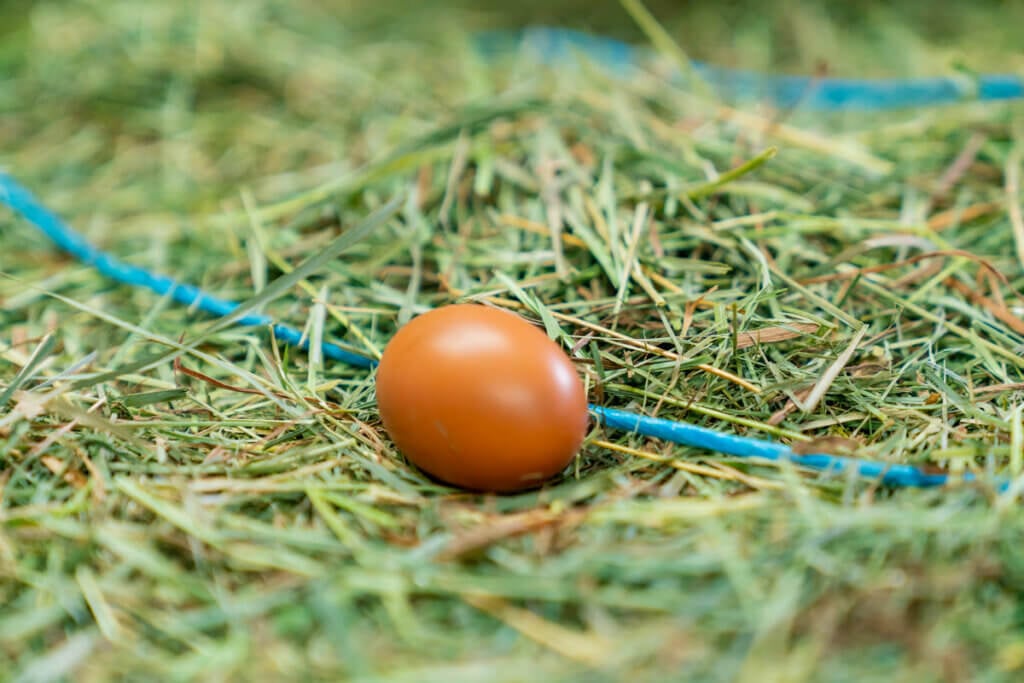
When Do Chickens Start Laying Eggs
Chickens can start to lay eggs when they are about 18 weeks old. They won’t lay as many per week as older hens, and the eggs will be smaller.
As the chicken grows in size, so will their eggs and production will increase. You can expect anywhere from 3-5 eggs per week, depending on the breed and health of the chicken.
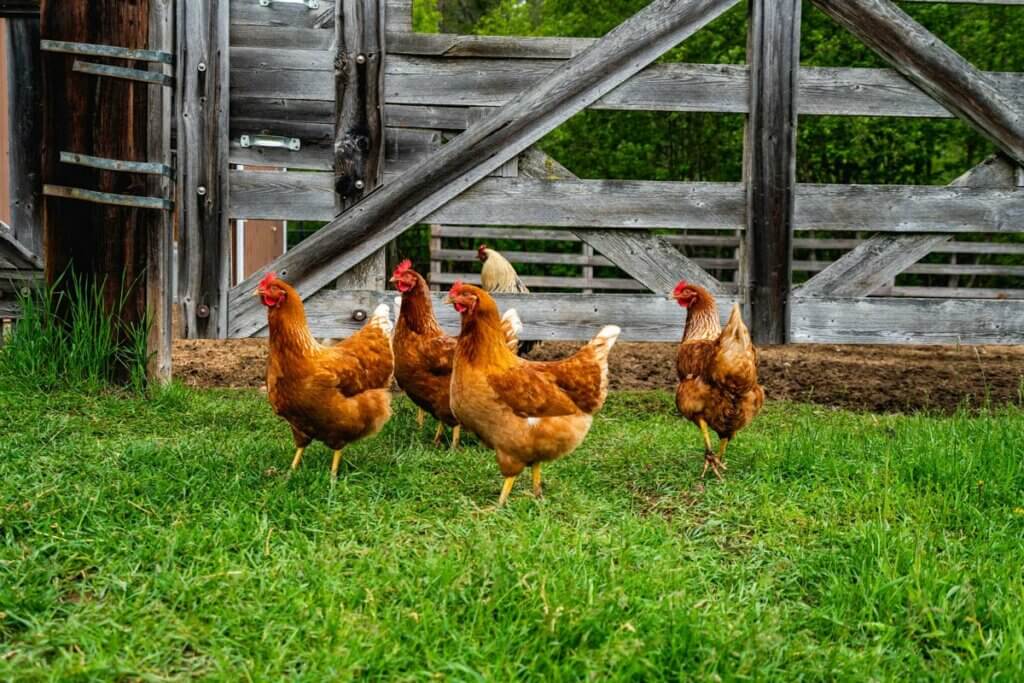
What Are The Best Egg Laying Breeds?
Egg-laying breeds are generally smaller than breeds raised for meat. Raising them for both is not always best. Once their egg-laying days are over and you butcher them, they will not give you a lot of meat.
In our experience, we have found that Australorp, Leghorn and Novogen Brown chickens (our favorite) are very healthy and hardy hens. They have very few issues and have the most significant production of eggs on our homestead. Generally, a healthy, happy egg layer will have about 300 eggs per year.
It can be helpful to ask around your neck of the woods and see what breed of chicken does well in your area.
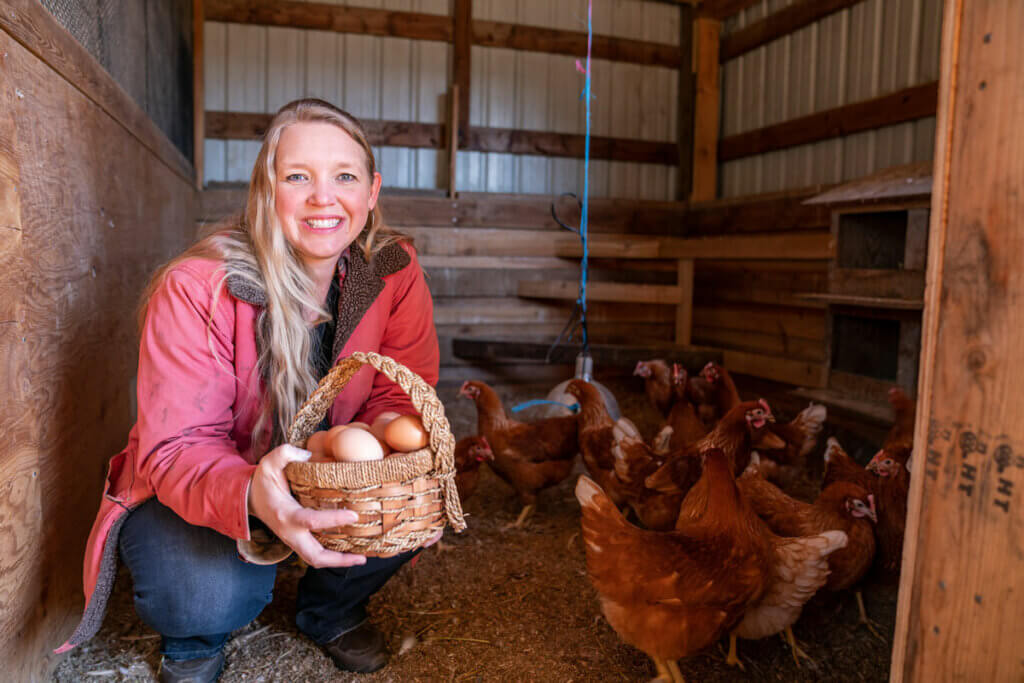
Why Do Chickens Stop Laying Eggs
Several factors can slow or even stop chickens from laying eggs. Preparing and doing what we can to keep our chickens healthy brings year-round benefits to our family.
Age
Throughout a chicken’s lifespan, egg production slows and eventually stops. They will lay eggs consistently for 2-5 years, with the first two years producing the highest yield.
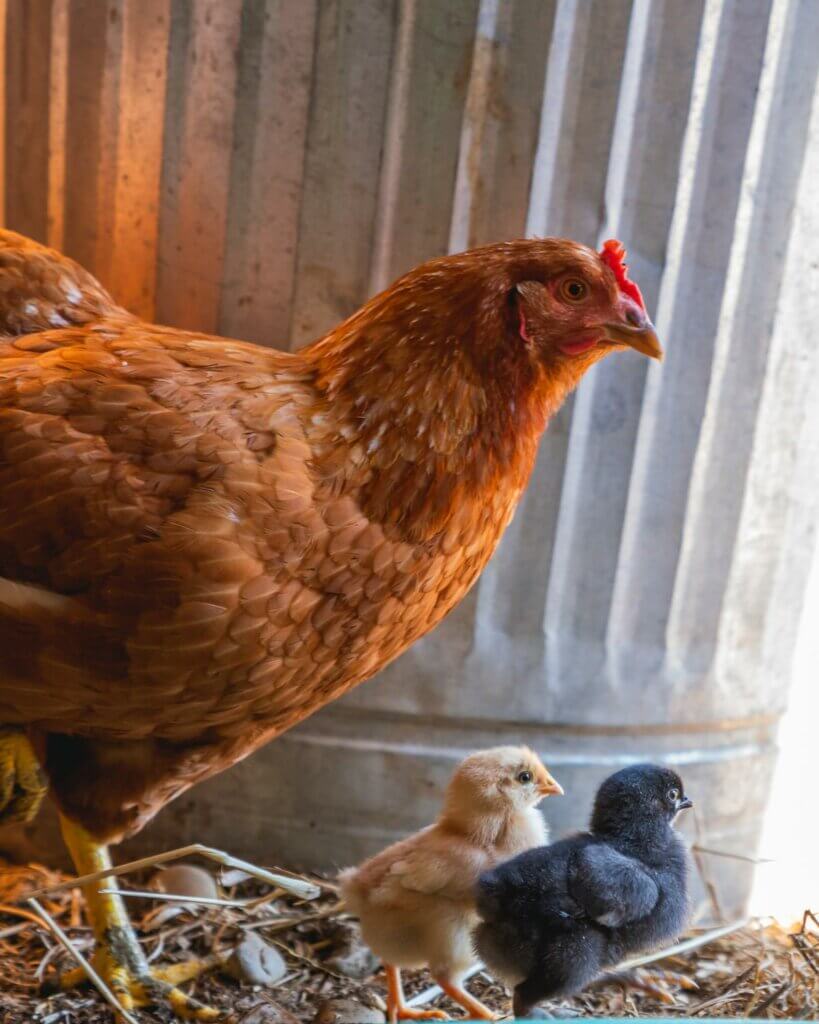
Brooding
There are times when a hen will go “broody”. She will sit on a clutch of eggs and only produce more after they hatch. If your goal is not hatching out chicks, then redirecting the hen as soon as possible is key if you want her to continue laying eggs.
Homesteading Hack: To redirect a broody hen, you’ll want to take away her ability to lay on the nest. So turning the nesting boxes around first thing in the morning after collecting eggs can help.
Molting
Chickens molt every year when the days become shorter. There are times when stress can cause molting. The feathers they have fall out and are replaced with new ones.
Sometimes the hen’s egg production will slow down or stop during this time. Usually, an adjustment with the feed and its protein levels will help with this natural process.
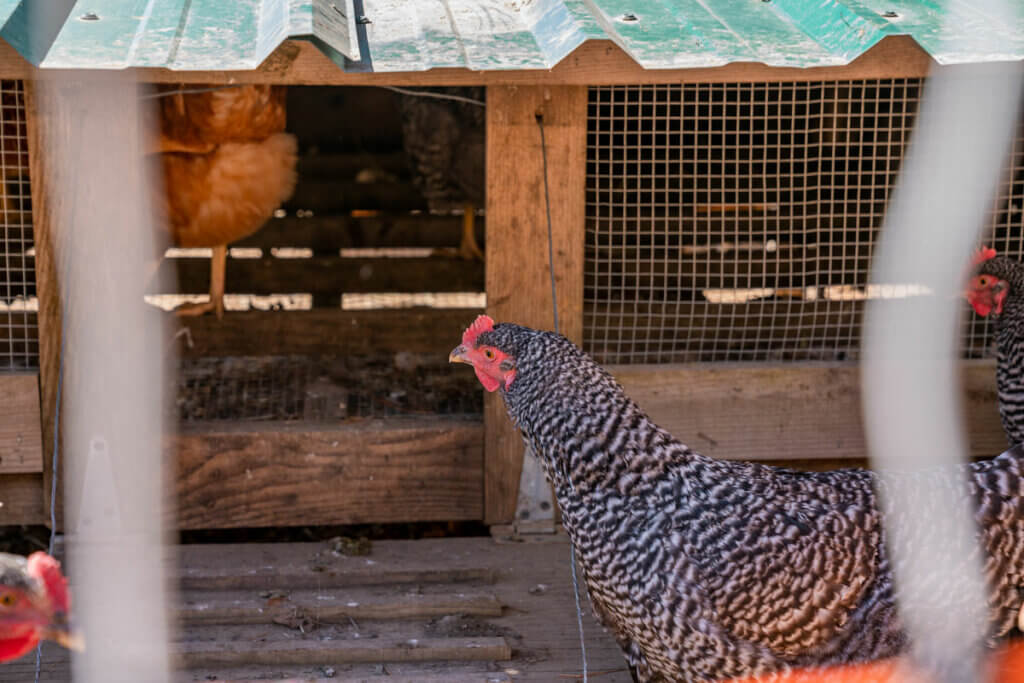
Light
You might think that the cold temperature of fall and winter slow egg production, but it has more to do with hours of daylight. We live so far north that 14-16 hours of light becomes 6-8 hours in the winter.
The natural cycle of laying hens during less daylight slows and, at times, stops.
You can add light to your chicken coop to keep egg production going, but we honor this change in the hen’s production cycle and capitalize on high egg production times by preserving as many eggs as possible.
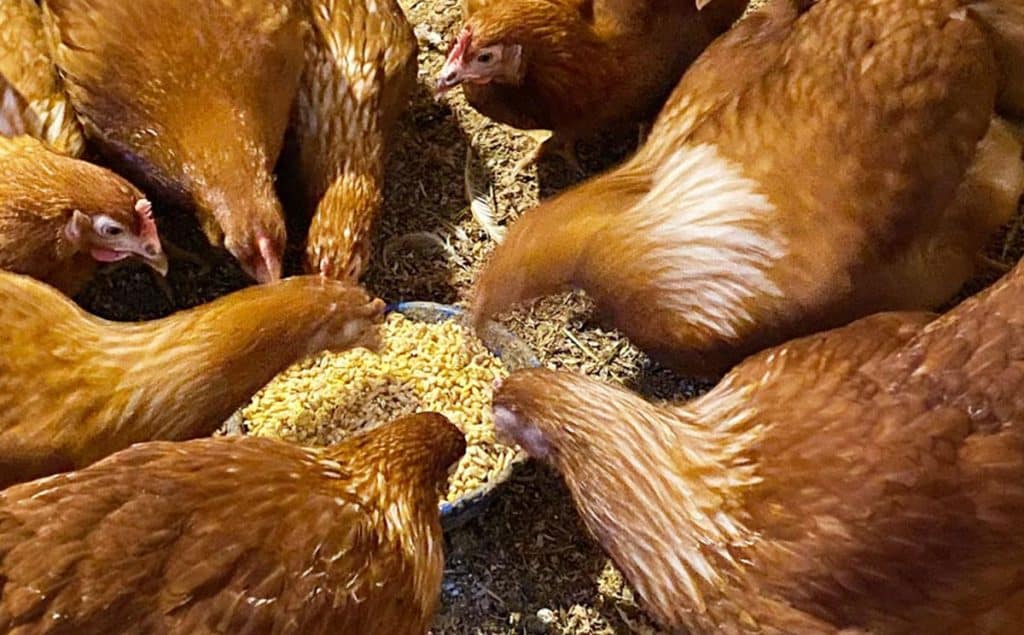
Nutrition
Nutrition is vital when it comes to egg production. By adding fermented chicken feed, we keep our chickens healthier, and it’s more cost-effective. A win, win all the way around.
Chickens have feeding requirements that change with age and size. Making sure they have the proper ratio of protein-rich feed at the correct times in their life is essential for egg production and overall health.
Water
Chickens need plenty of fresh, clean water. Winter months in colder climates are just as important. There are water systems with heat sources that make it easy to keep your chickens hydrated year-round.
If a chicken goes without water for too long, it can affect its laying potential for days (and even weeks).
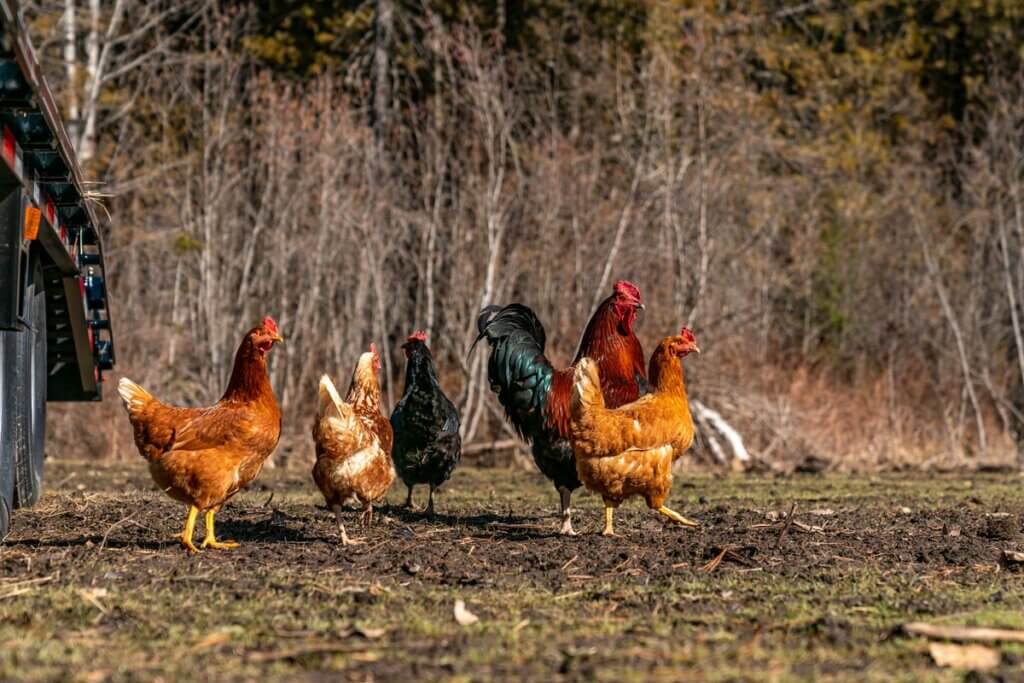
Stress
There are many ways to prevent stressed-out chickens.
Reducing the number of roosters, keeping a constant temperature in the chicken coop, being mindful of pecking order when adding new chickens to the flock, providing private and ample nesting box room, and a clean environment to roost are all great places to start.
Illness
Chickens can become ill and stop producing eggs. Honestly, you want healthy eggs from healthy chickens. Seek help to find out what is making them sick and heal your chickens as soon as possible so they don’t spread the illness to other chickens.
Homesteading Hack: If you suspect a sick chicken, it’s best to separate it from the flock until you identify what the problem is.
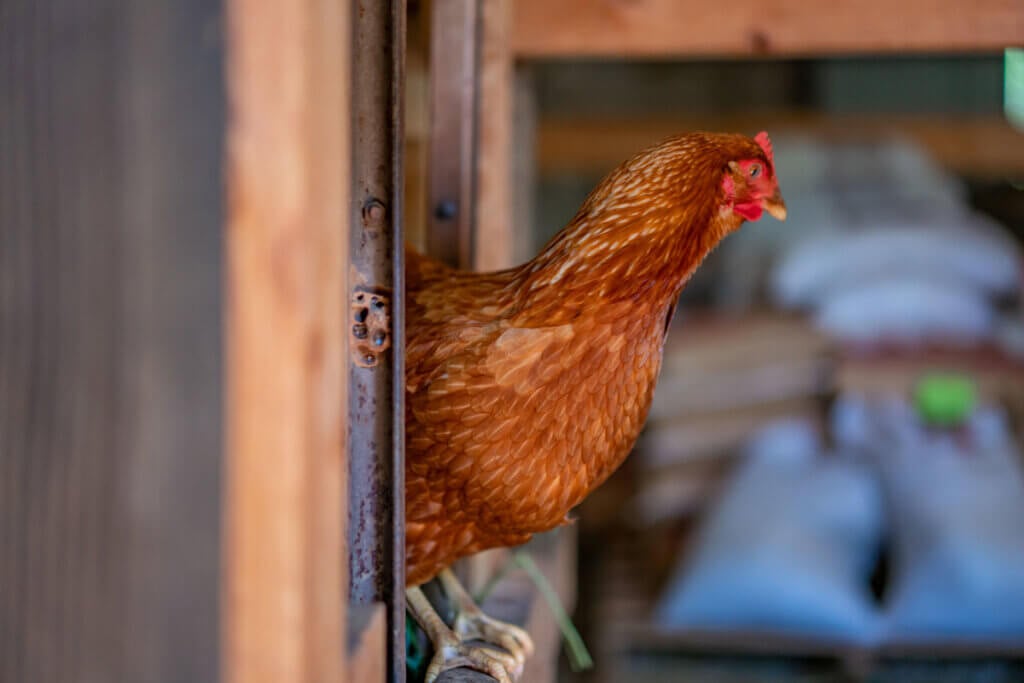
As you can see, there are multiple reasons why your chickens might stop laying eggs. One other reason may be that they haven’t stopped laying at all, but there’s a predator snatching those eggs while you’re not looking!
Once your chickens begin laying again, be sure to check out our class, The Abundant Pantry: Preserving Eggs. In this 11-video series, you’ll learn how to handle and store fresh eggs, how to choose the correct method of preservation for your eggs and ten practical methods for preserving eggs at home.
You’ll also receive Homesteading Family’s favorite egg recipes eBook for our favorite ways to use up extra farm fresh eggs.
Other Articles You May Enjoy
- Best Chicken Coop – Chicken Tractor Basics & What to Consider When Buying One
- Everything you need to know about Raising Meat Chickens
- How to Ferment Chicken Feed
- Freezing Eggs – How To Freeze Chicken Eggs
- The Best Pickled Egg Recipe – Easy Egg Preservation Recipe
- Easy Eggnog Recipe – A Holiday Classic
- How to Handle Farm Fresh Eggs












